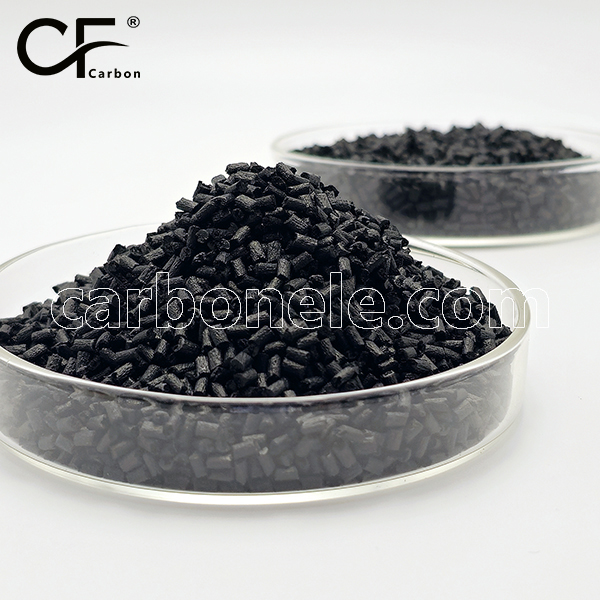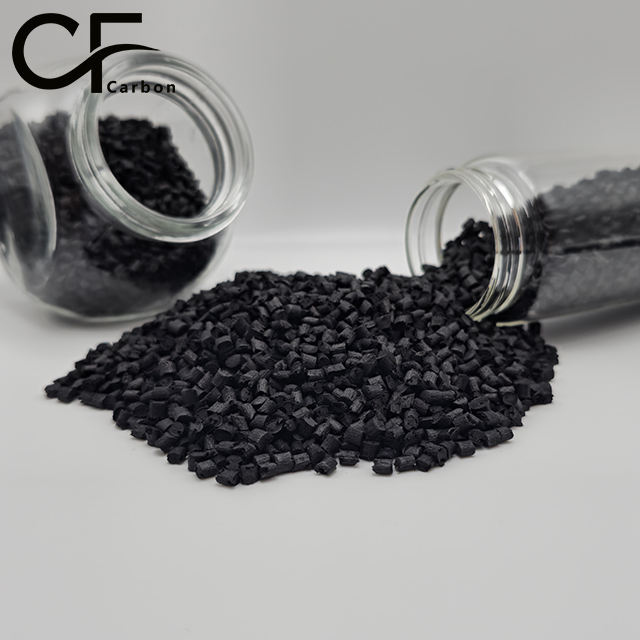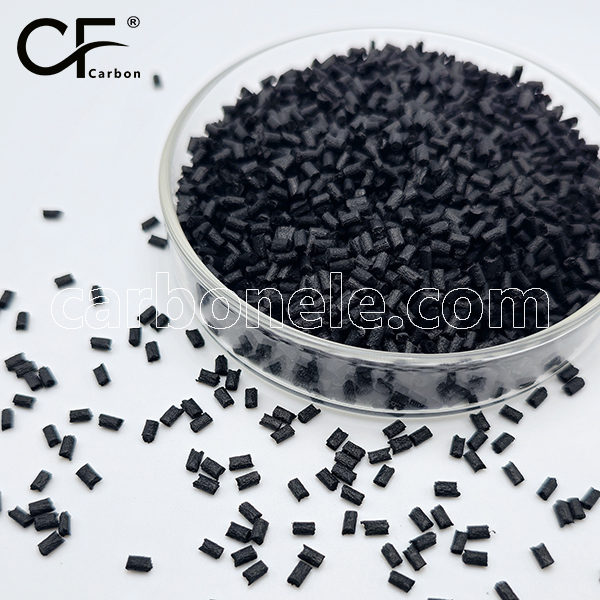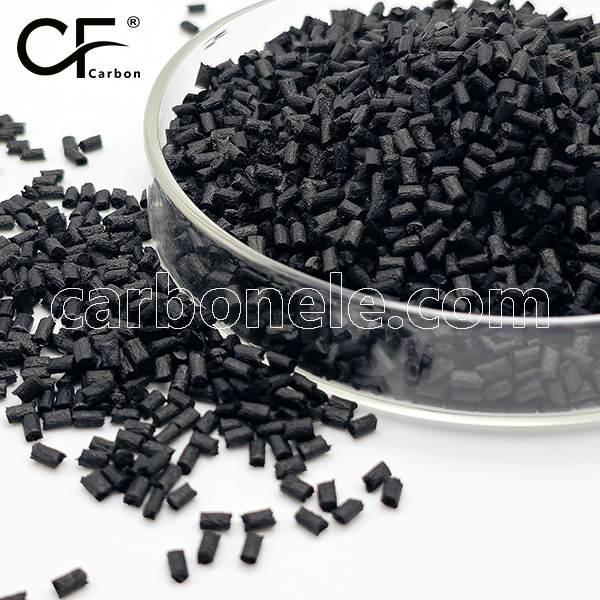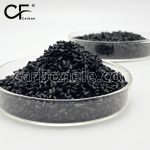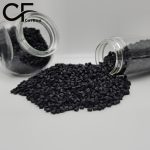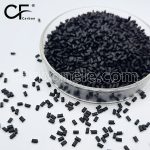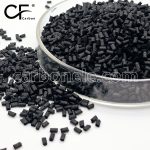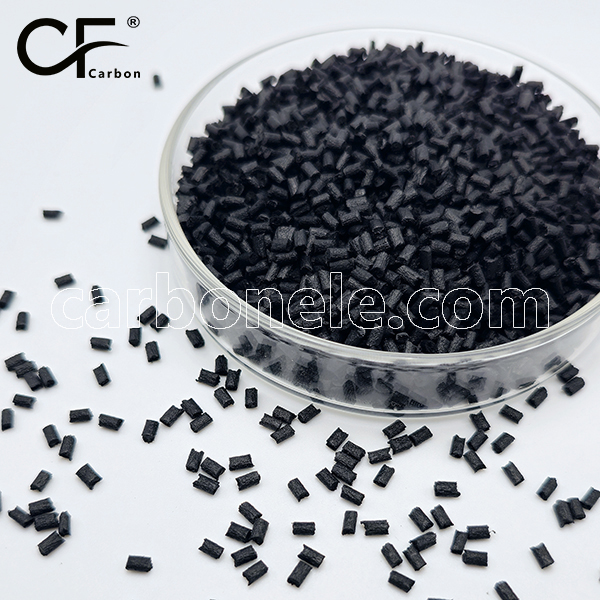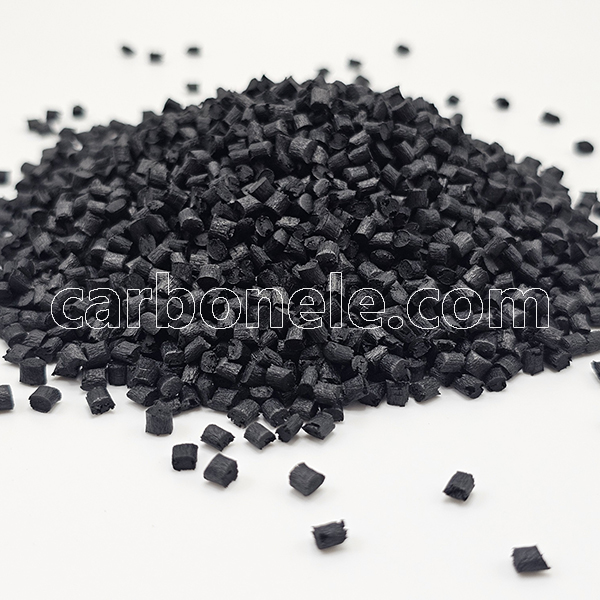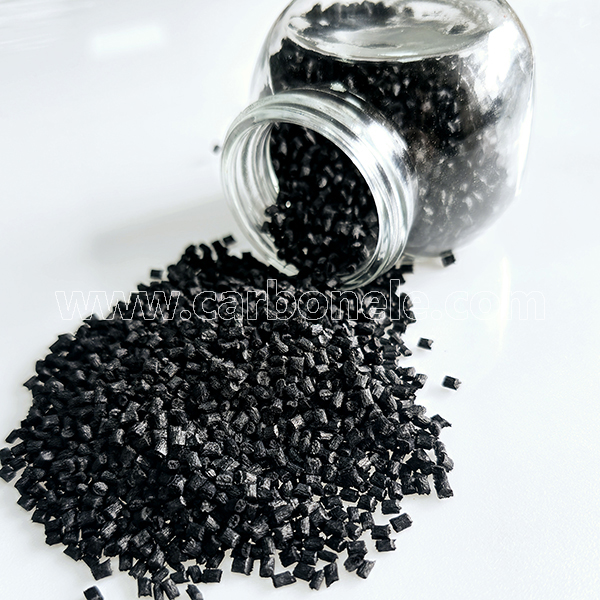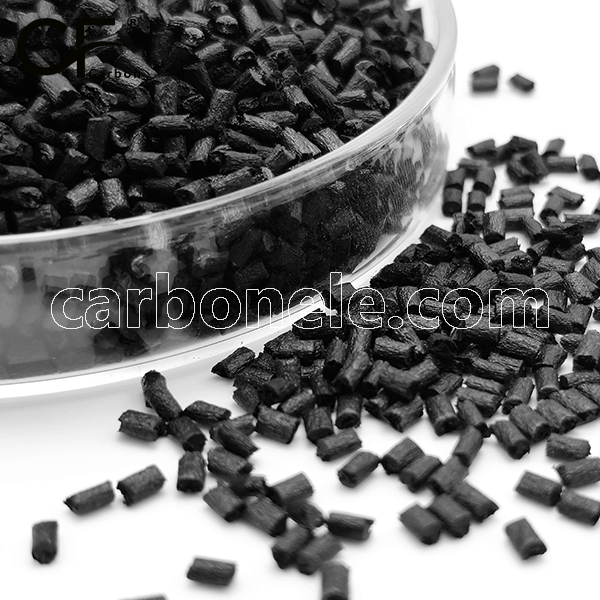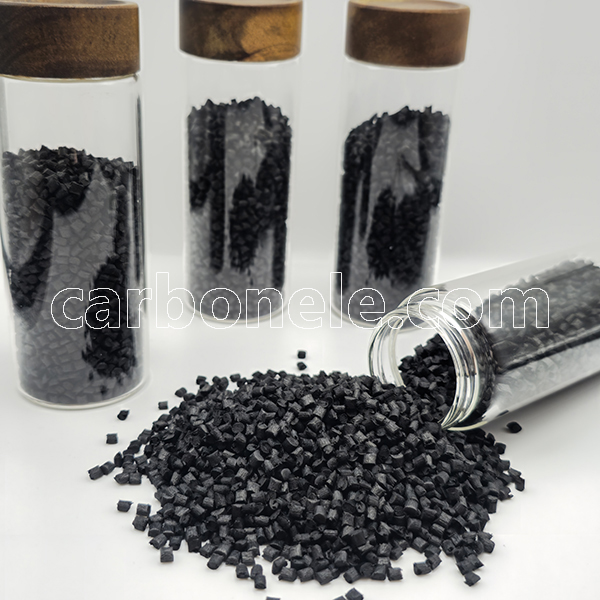
Strong Creep Resistance PA6-CF Raw Materials PA6 CF Composite Producer
PA6-CF, composed of PA6 and CF, is a creep-resistant composite. Adding CF improves material properties. PA6-CF series products with high carbon fiber content, special modifications, or advanced processes stand out in creep resistance.
- Manufacturer: Carbon New Material
- OEM/ODM: Acceptable
- Color: Black
- Free Samples: ≤25kgs
- MOQ: 100kgs
- Port: Xiamen
- Model: PA66-CF-BCA3
- Fillers: Carbon fibers
Creep Resistance PA6-CF is a composite material with creep resistance. It is composed of polyamide 6 (PA6) and carbon fiber (CF).
PA6 is a commonly used engineering plastic with characteristics such as good mechanical properties, wear resistance, and chemical resistance. Carbon fiber has excellent properties such as high strength, high modulus, and low density.
Adding carbon fiber to PA6 can significantly improve the strength, stiffness, and creep resistance of the material. Creep resistance refers to the ability of a material to maintain dimensional stability and shape invariance under long-term stress.
In the PA6-CF series, these following products stand out in creep resistance:
1.High carbon fiber content ones. For example, PA6 CF 30 with 30% or more carbon fiber. Enhances rigidity and strength, resists deformation.
2. Specially modified ones. Adding agents or optimizing structure improves creep resistance.
3. Made with advanced processes like PA6 CF40. Like side feeding for even distribution, enhancing creep resistance.
Outstanding properties of Creep Resistance PA6-CF
Notes
1: The Creep Resistance PA6-CF composite material has broad application prospects in multiple fields, especially in industries such as aerospace and automobile manufacturing that have high requirements for material performance.
2: The performance advantages of this material make it an excellent substitute for traditional materials and can bring more innovation and possibilities to product design and manufacturing.
Case Sharing
A prominent aircraft manufacturer was seeking a material to meet high strength demands and maintain dimensional stability long-term in the aerospace domain, . Creep Resistance PA6-CF composites produced by Carbon New Material Company emerged.
The manufacturer chose this material for making the fan blade casing of aircraft engines. After thorough testing and validation, it showed remarkable performance.
High strength and stiffness ensured the casing’s structural integrity in high-speed rotation and complex airflow. Even with extreme temperature and pressure changes, no deformation or damage.
Outstanding creep resistance let the casing retain precise dimensions and shape during long flights, enhancing engine efficiency and reducing maintenance.
The lightweight nature saved fuel and improved endurance.
With the successful application by this manufacturer, other aerospace enterprises are taking notice of this innovative material, bringing new opportunities.
Obtain information such as product specifications, performance, and price, and choose a suitable product according to your own needs. If you are interested in purchasing this composite material (PA66-CF-BCA3), please contact the manufacturer – Carbon New Material (Xiamen) Company directly.
How to Buy?
If you want to obtain information such as product specifications, performance, and price, choose a suitable product according to your own needs. Meanwhile, you can ask the manufacturer to provide samples for testing to ensure that the material meets your usage requirements. If you are interested in purchasing this composite material, please contact the manufacturer Carbon (Xiamen) New Material directly.

Frequently Asked Questions
Carbon (Xiamen) New Material Co., Ltd. aims to provide buyers with "one-stop" worry-free high-quality services. Here you can find all information about carbon fiber engineering plastics. If you still have questions, please send us an email for consultation!
-
How can I contact the manufacturer of a product that interests me?
When you find a product you are interested in, you can contact the manufacturer directly by sending an email and we will get back to you as soon as possible.
-
How do I find the products that interest me?
All you need to do is enter the keyword, product name in the search window and press the Enter key on your keyboard. Your search results page will then be displayed. You can also search within the product category pages on the home page. Each category is divided into subcategories, allowing you to refine your search and find products that interest you.
-
Where will I find a buying guide?
Please contact our after-sales service directly and we will provide you with a comprehensive operating guide.
-
What are CF Reinforced Thermoplastic Composites?
CF Reinforced Thermoplastic Composites are materials where carbon fibers are incorporated into a thermoplastic matrix. They combine the strength and stiffness of carbon fibers with the processability and recyclability of thermoplastics. For instance, they are used in automotive parts like bumper beams.
-
What are the benefits of CF Reinforced Thermoplastic Composites over traditional composites?
The key benefits include faster production cycles, easier recyclability, and better impact resistance. They also offer design flexibility. An example is in the manufacturing of consumer electronics casings where complex shapes can be achieved more easily.
-
How are CF Reinforced Thermoplastic Composites processed?
Common processing methods include injection molding, extrusion, and compression molding. Injection molding is widely used for mass production. For example, in the production of small components for the medical industry.
-
What industries use CF Reinforced Thermoplastic Composites?
They are utilized in aerospace, automotive, medical, and sports equipment industries. In aerospace, they can be found in interior components. In the medical field, they might be used in prosthetics.
-
How does the carbon fiber content affect the properties of the composites?
Higher carbon fiber content generally leads to increased strength and stiffness but may reduce ductility. A moderate content is often balanced for specific applications. For example, a higher content might be preferred in structural parts of a race car.
-
What are the challenges in using CF Reinforced Thermoplastic Composites?
Challenges include higher material costs, complex processing equipment requirements, and ensuring uniform fiber dispersion. Issues with adhesion between the fibers and the matrix can also arise. An example is in achieving consistent quality in large-scale production.








